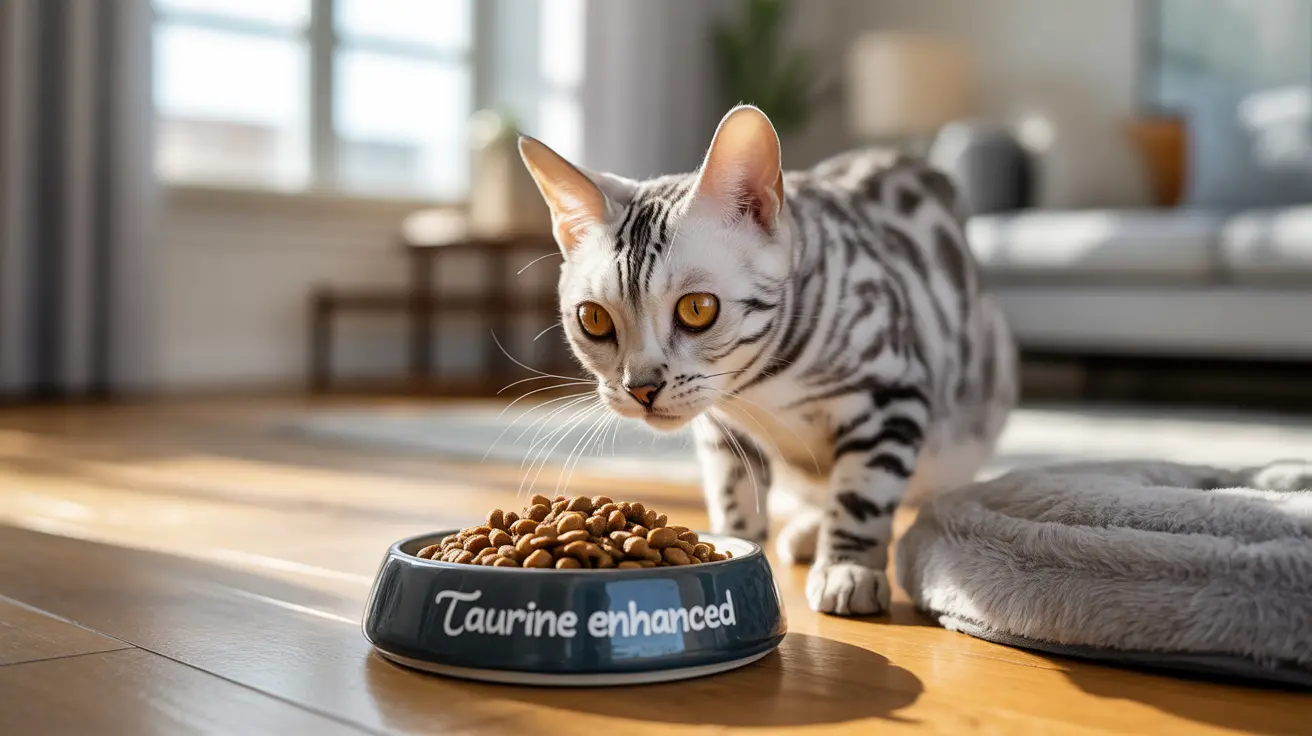For cat owners, understanding the importance of taurine for cats isn't just about nutrition—it's about ensuring their beloved pets live long, healthy lives. This essential amino acid plays a crucial role in feline health, affecting everything from heart function to vision and reproduction. Unlike many other animals, cats cannot produce sufficient taurine on their own, making dietary sources absolutely vital.
In this comprehensive guide, we'll explore why taurine is indispensable for cats, how to ensure your feline friend gets enough, and what happens when they don't. Whether you're a new cat parent or a seasoned owner, this information could be crucial for your pet's wellbeing.
Understanding Taurine's Role in Feline Health
Taurine serves multiple essential functions in cats' bodies. This amino acid is fundamental for maintaining healthy heart muscle function, ensuring proper vision, and supporting reproductive health. It also plays a vital role in digestion by helping form bile salts that aid in fat absorption.
Unlike humans and dogs, cats lack the enzyme necessary to produce adequate amounts of taurine from other amino acids. This unique biological characteristic makes them completely dependent on dietary sources to meet their taurine needs.
Sources of Taurine for Cats
The best natural sources of taurine for cats come from animal-based proteins. Raw meat, especially heart and muscle tissue, contains high levels of this essential nutrient. However, most cat owners rely on commercial cat food, which is fortified with appropriate taurine levels to meet AAFCO standards.
Common dietary sources include:
- Commercial cat food (wet and dry)
- Meat-based proteins (especially organ meats)
- Fish and seafood
- Specially formulated taurine supplements
Signs of Taurine Deficiency
Recognizing taurine deficiency early can prevent serious health complications. Common symptoms include:
- Deteriorating vision, especially in dim light
- Heart problems (dilated cardiomyopathy)
- Reproductive issues
- Poor coat condition
- Lethargy and weakness
- Digestive problems
Prevention and Treatment Strategies
Preventing taurine deficiency is relatively straightforward with proper dietary management. Feeding high-quality commercial cat food that meets AAFCO standards is usually sufficient. However, cats on homemade diets require special attention to ensure adequate taurine intake.
If deficiency occurs, veterinarians typically prescribe taurine supplements while addressing any underlying health issues. The good news is that many symptoms can improve with proper supplementation, though some conditions, like advanced retinal degeneration, may be irreversible.
Special Considerations for Different Life Stages
Taurine requirements can vary depending on a cat's age, health status, and lifestyle. Kittens, pregnant cats, and senior cats may need different levels of taurine. Working with your veterinarian to understand your cat's specific needs is essential for optimal health.
Frequently Asked Questions
How do I know if my cat has a taurine deficiency and what are the symptoms?
The most common signs include vision problems (especially at night), heart issues, poor coat quality, lethargy, and digestive problems. If you suspect taurine deficiency, consult your veterinarian for proper diagnosis through blood tests and physical examination.
What are the best sources of taurine for cats, and do homemade cat foods provide enough?
Commercial cat foods formulated to meet AAFCO standards provide adequate taurine. Homemade diets often don't contain enough taurine unless specifically supplemented. Natural sources include organ meats, muscle meat, and seafood, but proper supplementation is crucial for homemade diets.
Can taurine supplements for cats really help with heart and eye problems, and how are they administered?
Yes, taurine supplements can help reverse certain conditions, especially heart problems, if caught early. They're typically administered orally in tablet, powder, or liquid form, as prescribed by a veterinarian. However, some conditions, like advanced retinal degeneration, may be permanent.
Does my cat need extra taurine if they eat commercial cat food, and how often should I check for deficiency?
Cats eating complete and balanced commercial cat food typically don't need additional taurine supplementation. However, annual veterinary check-ups can help monitor taurine levels, especially for cats with specific health conditions or those on specialized diets.
What happens if a cat gets too much taurine, and are there any risks or side effects?
Taurine is generally considered safe, and excess amounts are typically excreted in urine. There are no known toxic effects from taurine oversupplementation in cats. However, always follow veterinary guidance for proper dosing of supplements.
Conclusion
Understanding the importance of taurine for cats is crucial for every cat owner. While taurine deficiency has become relatively rare thanks to modern commercial cat foods, awareness of this essential nutrient helps ensure our feline companions receive proper nutrition throughout their lives. Regular veterinary check-ups and appropriate dietary choices remain the best ways to prevent taurine-related health issues.






